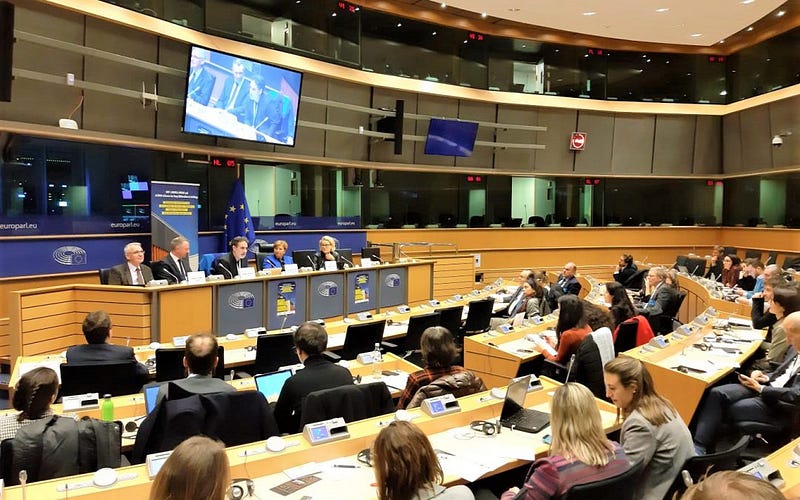The Looming Threat of Political Upheaval
The forthcoming European parliamentary elections represent a pivotal juncture that could significantly derail the European Union’s ambitious green agenda, leading to profound economic and market repercussions warranting meticulous scrutiny. A recent Moody’s Analytics report warns that the anticipated surge of far-right political parties in the elections could critically undermine the EU’s climate and sustainability targets, potentially reversing years of progress.
Economic Implications of Political Challenges
The potential reversal or slowdown of the EU’s green agenda due to political headwinds poses grave economic implications across various sectors. According to the European Commission, the EU has invested over €673 billion in renewable energy and energy efficiency initiatives since 2010, with projections of an additional €1.1 trillion investment by 2030. A policy shift could jeopardize these investments, leading to significant financial losses and market disruptions.
Furthermore, a study by the International Renewable Energy Agency (IRENA) estimates that the EU’s renewable energy sector directly employs over 1.2 million people, with an additional 4.5 million indirect jobs. A stalled green agenda could result in job losses and economic stagnation, particularly in regions heavily reliant on these industries.
Strategic Positioning of European Corporations
Amidst the looming political turbulence, leading European corporations and industries are proactively strategizing to adapt to the shifting landscape, leveraging advanced technologies to bolster their resilience. A PwC survey reveals that 84% of CEOs whose companies have adopted AI believe it will increase efficiency in their employees’ work, while 70% anticipate AI will significantly change how their company creates, delivers, and captures value over the next three years.
Companies like Siemens, Schneider Electric, and Vestas Wind Systems are at the forefront of integrating AI and automation into their operations, enhancing productivity and reducing carbon footprints. Vestas, for instance, has implemented machine learning algorithms to optimize wind turbine performance, increasing energy output by up to 5%.
Technological Solutions and Innovative Approaches
With the evolving political landscape in Europe, cutting-edge technologies and innovative solutions are poised to be pivotal in sustaining the momentum towards the EU’s ambitious sustainability objectives. Private investment in generative AI surged to $25.2 billion in 2023, nearly octupling from the previous year, underscoring the transformative potential of these technologies.
Companies like Google and Microsoft are leveraging generative AI to develop advanced energy management systems, optimizing energy consumption and reducing carbon emissions. Furthermore, the adoption of collaborative and service robots in industrial settings has risen, with their share of global installations reaching 9.9% in 2022, enabling more efficient and sustainable manufacturing processes.
Beyond technological solutions, innovative approaches such as circular economy models and sustainable supply chain management are gaining traction. Companies like Philips and IKEA are implementing closed-loop systems, reducing waste and maximizing resource efficiency, mitigating the impact of potential policy shifts.
Sustaining Global Sustainability Efforts
The forthcoming European parliamentary elections represent a decisive moment that will shape the future trajectory of the EU’s environmental and climate policies, with far-reaching implications for global sustainability efforts. As the world grapples with the escalating climate crisis, a unified and steadfast commitment to the green agenda is imperative.
Policymakers, corporations, and citizens must remain vigilant and actively engage in the political process, advocating for policies that uphold the EU’s commitment to environmental stewardship. Failure to do so could have catastrophic consequences, not just for Europe but for the entire planet.
By leveraging advanced technologies, fostering innovation, and embracing sustainable business practices, European corporations can navigate the evolving political landscape while maintaining their commitment to the green agenda. Ultimately, a collaborative effort between policymakers, industry leaders, and citizens is essential to ensure a sustainable future for generations to come.









